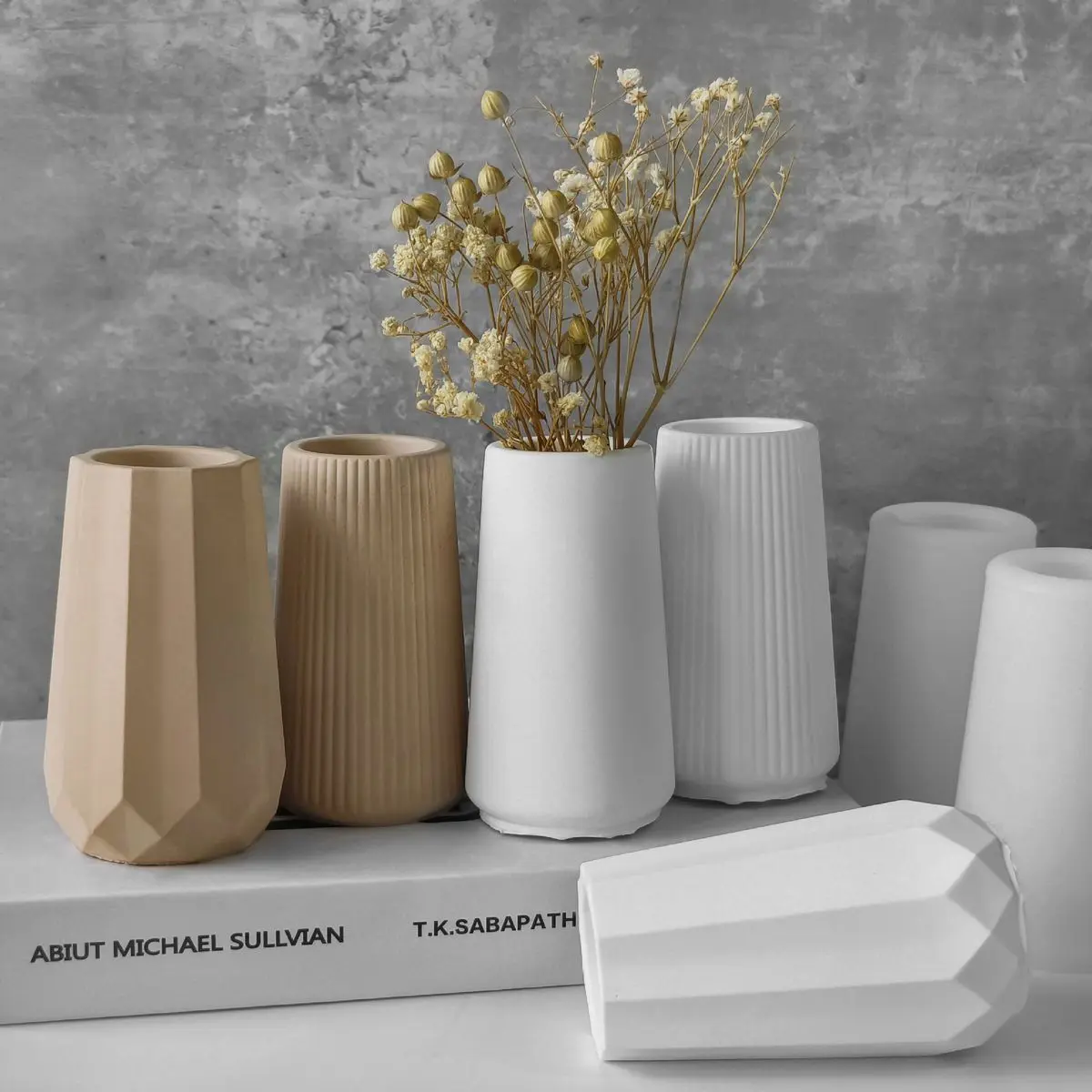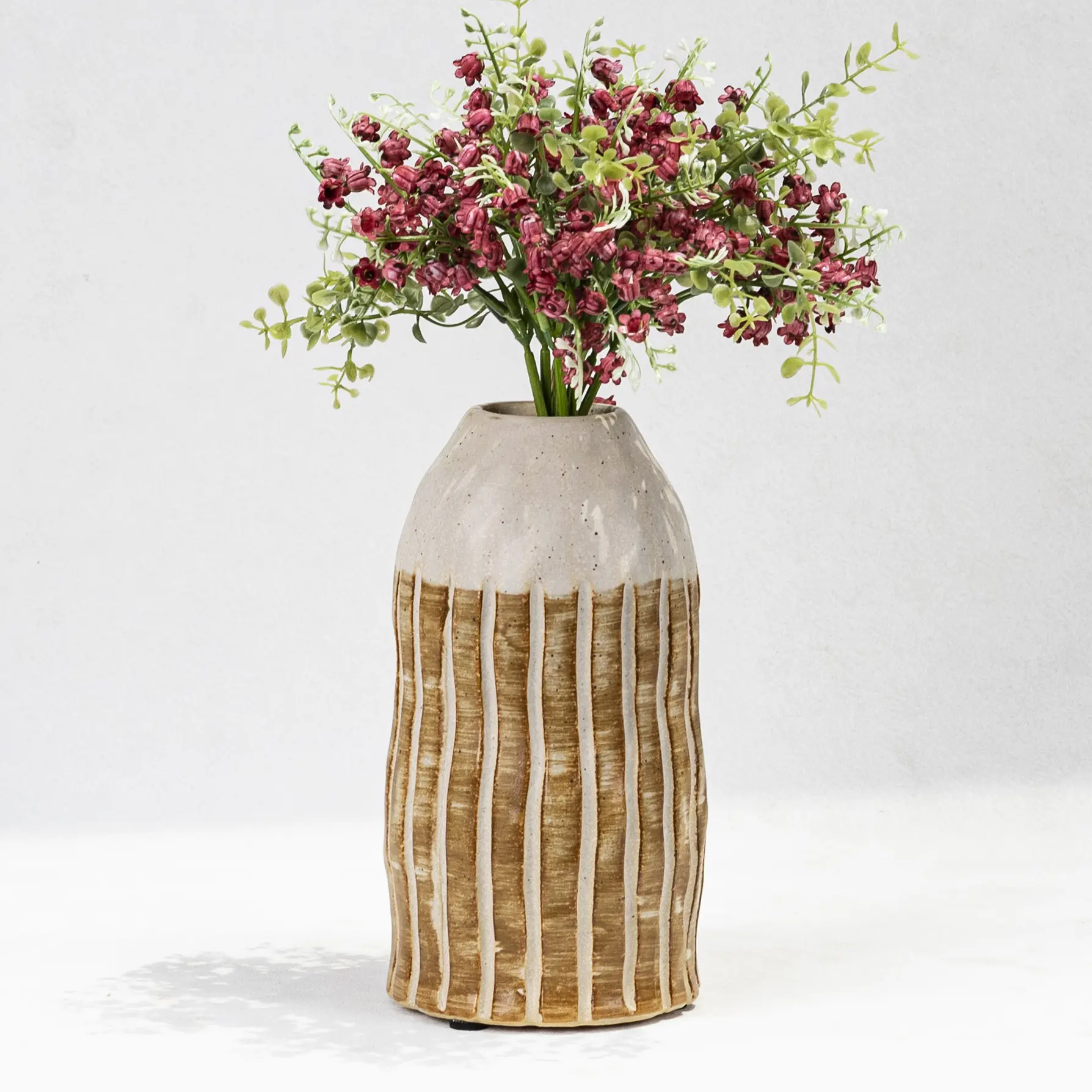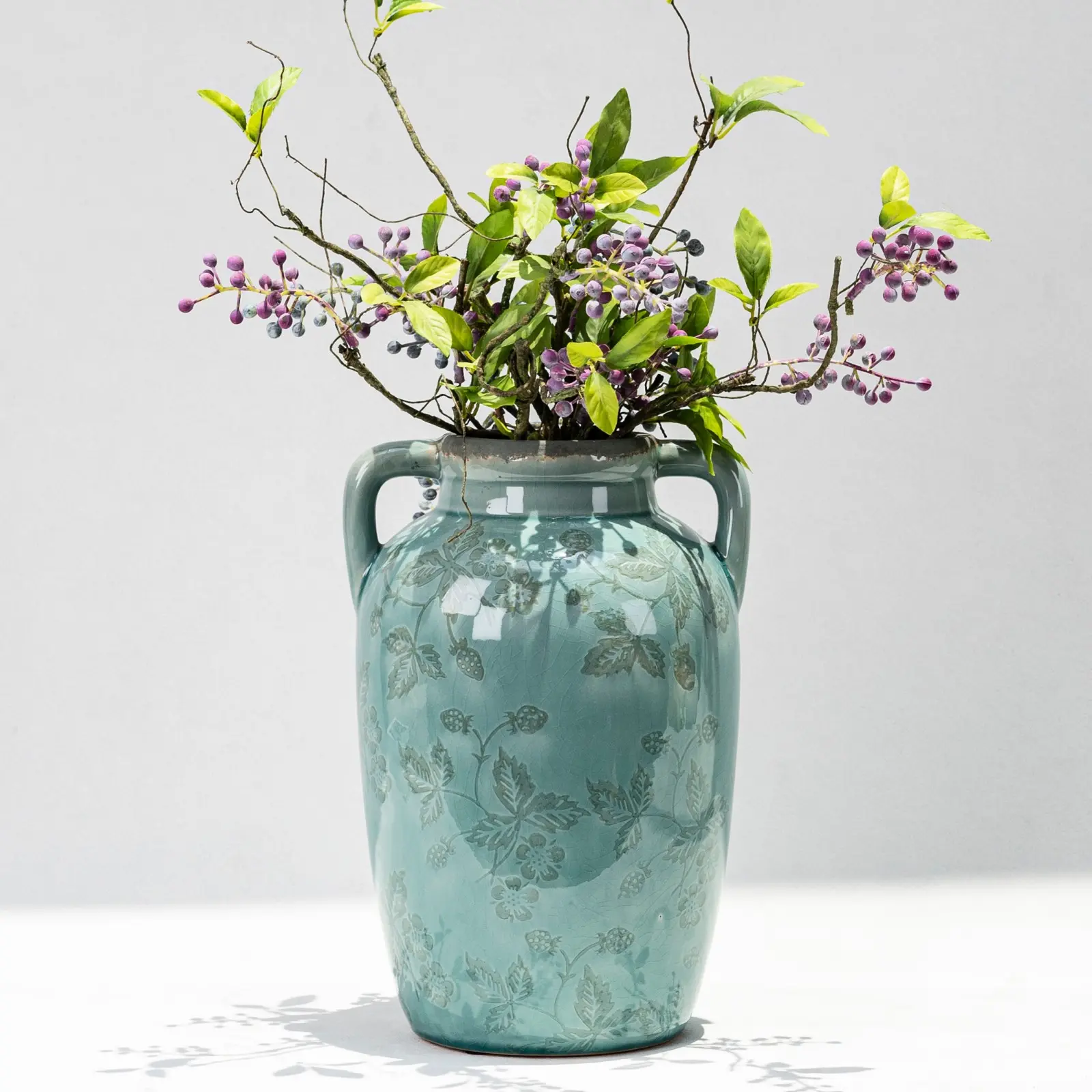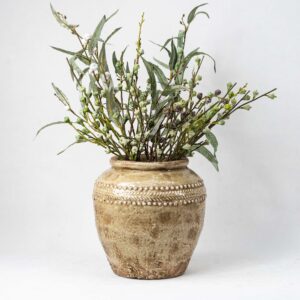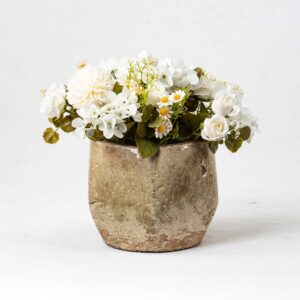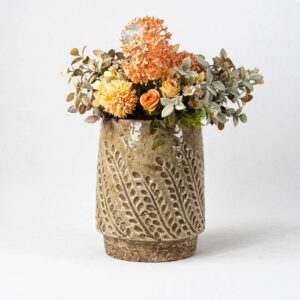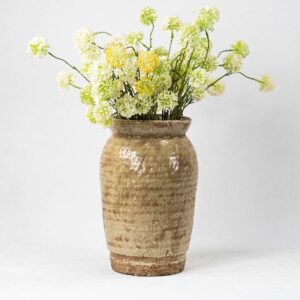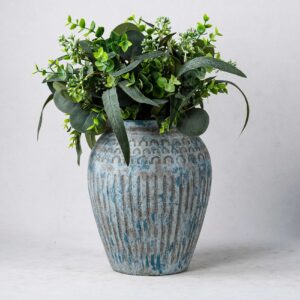Selecting an outdoor garden decor material is what turns a decor item into a long-lasting centerpiece or a fragile maintenance nightmare. Ceramic and resin are two of the top materials—both have clear advantages and disadvantages regarding durability, aesthetic appeal, upkeep, cost level, and impact on the environment.
SANTAI, a leading home decor manufacturer, wrote this slice to provide a full material review and sound shopping and displaying advice so that you can make the optimal selection for any exterior environment.
Quick Material Overview
Resin is a cast polymer. New formulations can duplicate exactly stone, wood, metal, or ceramic surfaces. Resin is impact-resistant, lightweight, and perfectly designed for mass production. UV-stabilized resins are colour-fast for longer durations outdoors.
Ceramic is a material based on clay, shaped and fired in a kiln. Ceramics’ beauty is in its tactile glaze finishes and handcrafted appeal; hand-painted ceramics and classic glazes afford depth and cultural significance.
Both resin and ceramic are widely used in garden decoration. Resin is used to make lightweight, weather-resistant and easy-to-move sculptures, ornaments and flower pots suitable for long-term outdoor use, while ceramic is often used to make delicate and artistic vases and decorations, with more emphasis on texture and detail.
Weather Resistance & Durability
Resin Strengths:
- Impact resistance: Less likely to chip or break if overturned; more stable in public or residential applications.
- Lightweight: Enhanced handling, mounting, and shipping—less labor and freight expense.
- UV stability (when treated): New UV-stabilized resins introduced are non-fading; untreated resins discolor with age.
- Frost resistance: Certain resins are made to be freeze-thaw stable.
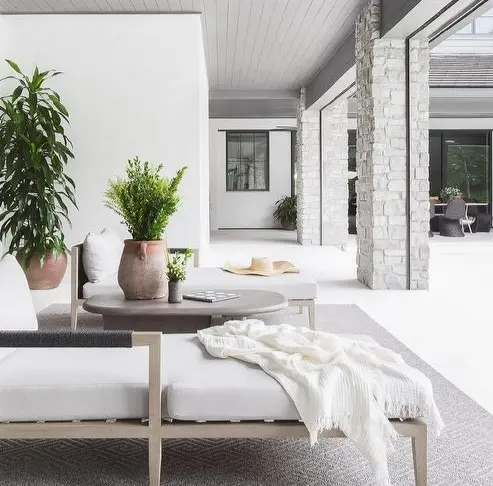
Ceramic Strengths & Limitations:
- Aesthetic longevity: Glazes have depth of color and surface quality that feel upscale.
- Brittleness: Pottery can easily crack or even suffer serious damage due to misuse or freeze-thaw weathering. In contrast, high-temperature fired stoneware and porcelain are more resistant to frost but are heavier.
- Thermal shock sensitivity: Abrupt temperature changes (e.g., warm sun after cold rain) have the potential to stress ceramics; glazed surfaces also can craze with time.
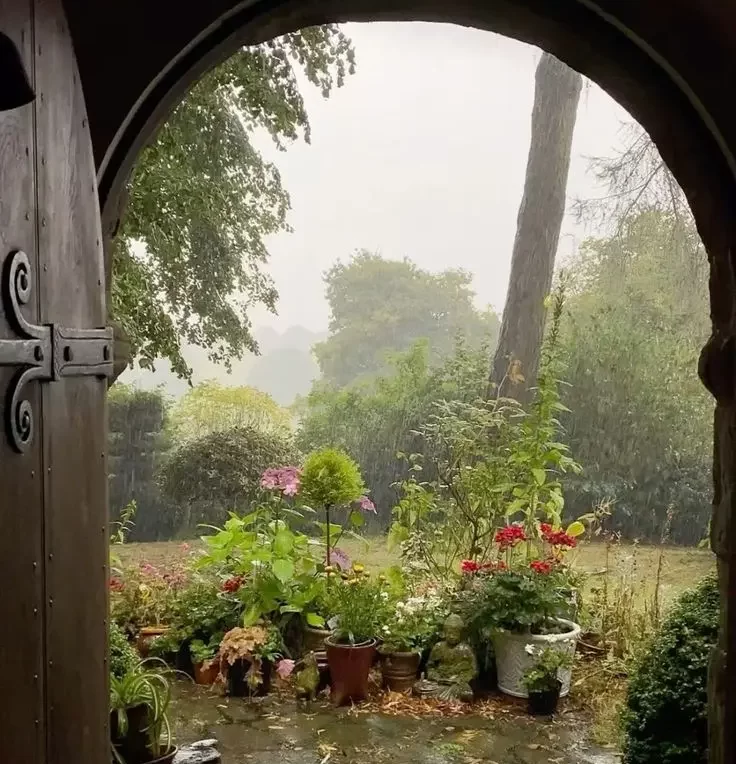
Climate Guidance:
- Cold/Freeze-Thaw Areas: Top-quality tested resin OR frost-proof porcelain approved for exterior installation.
- Mild/Temperate Climates: Ceramic is fine, especially in a covered patio or under eaves.
- Exposed/Public/Poolside: Resin is preferable due to impact resistance and reduced injury likelihood if pieces get dropped.
Care & Maintenance
Resin Maintenance:
Daily care: Lightly clean with a soft cloth and mild detergent; pressure-washing at low power will frequently be safe.
Avoid: Solvents or abrasive pads that will erode finishes; direct sun exposure on non-UV-stabilized materials for long periods.
Long-term: UV stabilizers will greatly improve color life.
Ceramic Care:
Daily care: Soap and soft-brush cleaning. The glaze finish is less susceptible to staining than unglazed earthenware.
Avoid: Hard impact or dropping; thermal shock (do not pour boiling water into a cold ceramic outside).
Seasonal care: Dry store fragile ceramics indoors during severe winter or on high pedestals out of standing water and freezer damage.
Aesthetics & Design Flexibility
Resin:
- Flexibility: Resin can be cast in highly detailed molds to replicate fine sculptural detail or mimic natural texture (stone, wood grain).
- Finish options: Patinas, metallics, faux-antique treatments, and more
- Consistency: Ideal for retailers that need batch-to-batch consistency.
Ceramic:
- Authenticity: Hand-glazed finish, brush marks, crackle glazes, and hand painting all add to an artisanal, collectible look that appears to be durable enough to support premium retail prices.
- Uniqueness: Even within production lots, ceramic pieces might slightly differ — a selling point in upscale markets but a weakness for bulk orders that demand exact duplicates.
- Design choice: Use resin for trend-driven, repeatable lines and ceramic for boutique, upscale showcase pieces.
Cost, Production & Wholesale Considerations
Resin Economics:
- Lower shipping & handling expense: Lower weight reduces freight and fewer claims of damage.
- Turnaround: Production cycles are shorter than those of ceramic, so reorders can be shipped more quickly and respond to trends quickly.
- Lower breakage rate: Lower transit loss; optimum for large wholesale orders.
Ceramic Economics:
- Higher unit cost & freight: Higher weight and kiln firing increase production and shipping costs.
- Longer lead times: Firings and glaze firings take time to add to production — budget additional lead times for seasonal release.
- Increased perceived value: Higher retail price potential for handcrafted ceramics, ideal for prestige lines.
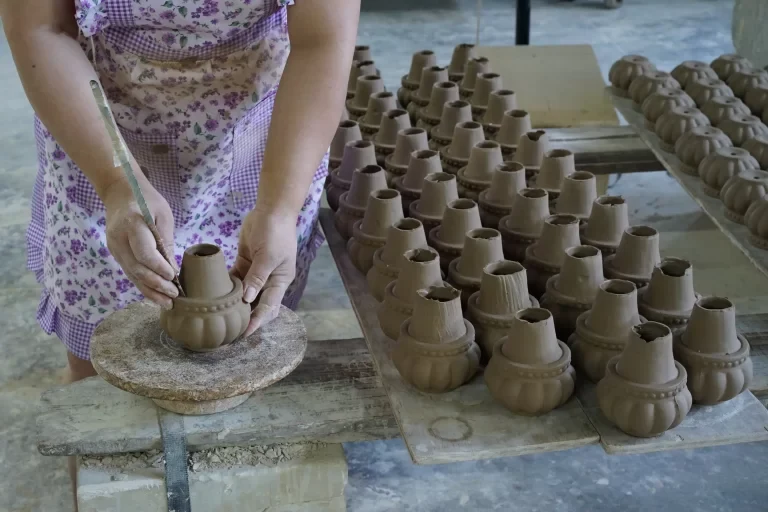
Retail strategy: Combine a successful, high-rotation resin core line with a hand-curated ceramic selection to satisfy mass and luxury markets.
Sustainability & Environmental Impact
Resin:
Traditional problems: Most resins are petrochemical-derived and have recycling/end-of-life issues.
Emerging trends: Recyclable materials and bio-based resins under development; verify vendor reports and sustainability certification.
Life-cycle: Reduced weight reduces transport emissions, yet recyclability and end-of-life remain an issue unless the material is inherently recyclable.
Ceramic:
Natural raw materials: Minerals and clay; extremely long service life reduces replacement requirements.
Energy use: Firing kilns is a high-energy process. Choose suppliers who use energy-efficient kilns, renewable energy, or local suppliers to help reduce carbon footprints.
Recyclability: Durable ceramics can be reused, redesigned into something new, or retained as family heirlooms, thus encouraging sustainability through durability.
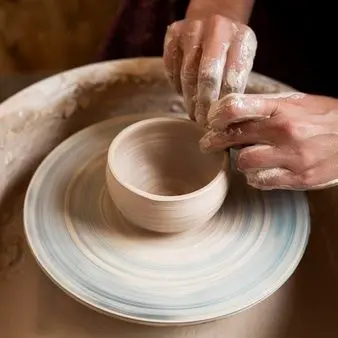
Recommendation: Account for end-to-end lifecycle—manufacturing energy, shipping emissions, and end-of-life—in materials selection and inform customers of these trade-offs.
Practical Applications
Where to apply resin:
- Exterior: pool decks, patios, children’s gardens, public spaces, and garden retail displays requiring long-lasting, low-maintenance products.
- Large, heavy sculptures where weight and safety are a concern.
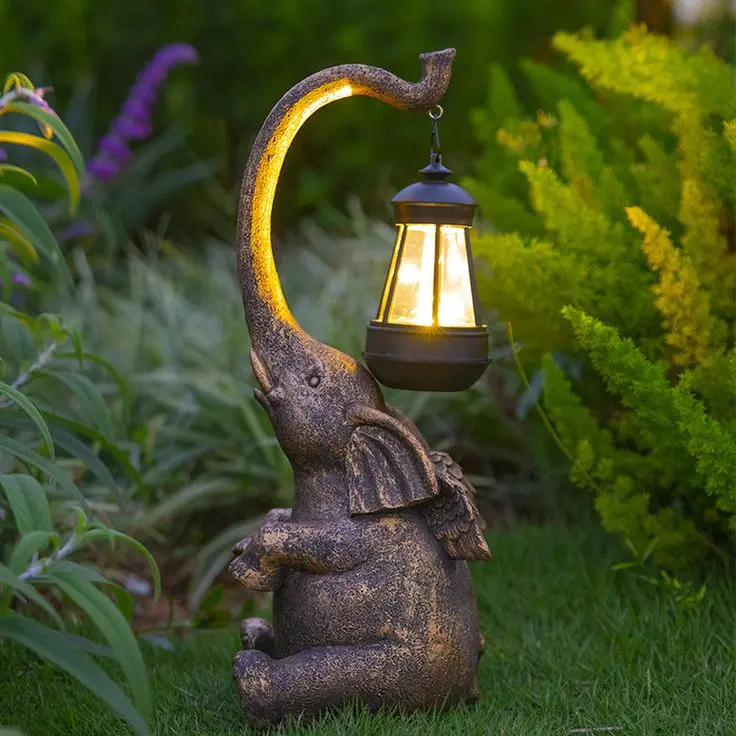
Where is ceramic best applied:
- Covered patios, sunrooms, indoor-outdoor transitions, and gallery exhibitions where a high-end appearance and feel glaze is needed.
- Limited-run decorative sets, craft gift lines, and export markets where high-end cultural ceramic craftsmanship is a priority.
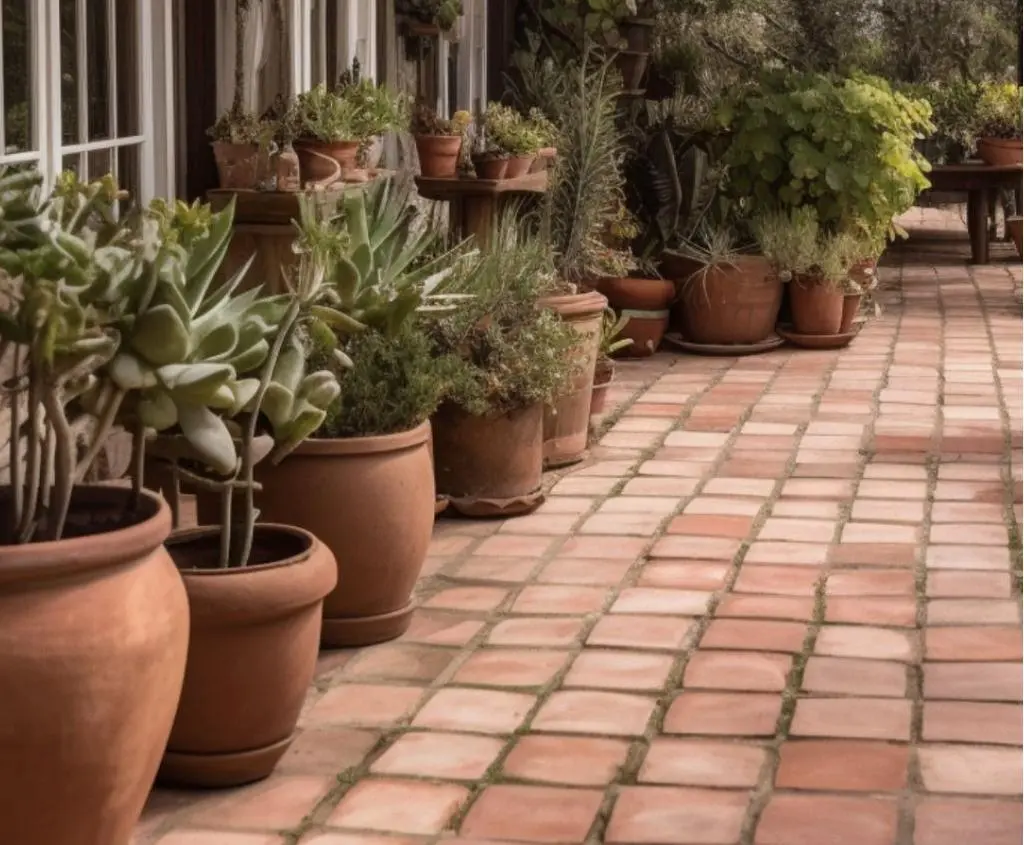
Conclusion
There isn’t a blanket right solution. The best material depends on your climate, price point, display location, and market position. For best outdoor scalability in outdoor wholesaling and outdoor longevity, modern engineered resin does best in most situations. For handmade value, cultural relevance, and upscale focal points, however, ceramic is still the best bet — when within protected environments.
About Santai
Welcome to SANTAI. As a professional ceramic decor manufacturer. We have a team with many years of experience, focusing on every detail of the home decor manufacturing industry. We understand that what you need is not a single standardized product, but a custom ceramic decor solution that meets your unique needs.

Why choose us?
- Experienced: From the establishment to now, we have gone through many years and know every vein of the industry.
- Quality First: No matter how the market changes, our insistence on products is consistent with high standards and strict requirements.
- Customized service: Whether you need a regular model or a specially customized solution, we can tailor the most suitable solution according to your needs.
- Fast delivery: We understand your needs and how important time is to you.
- Full support: From the beginning to the end, our team will keep in touch with you at every stage, and we will solve any problems at any time.
Contact Us
Don't hesitate to call us+86-13828361008
Don't hesitate to call ussale01@santai.cn
Don't hesitate to contact usRuyi Industrial Zone, Chaozhou, Guangdong, China

